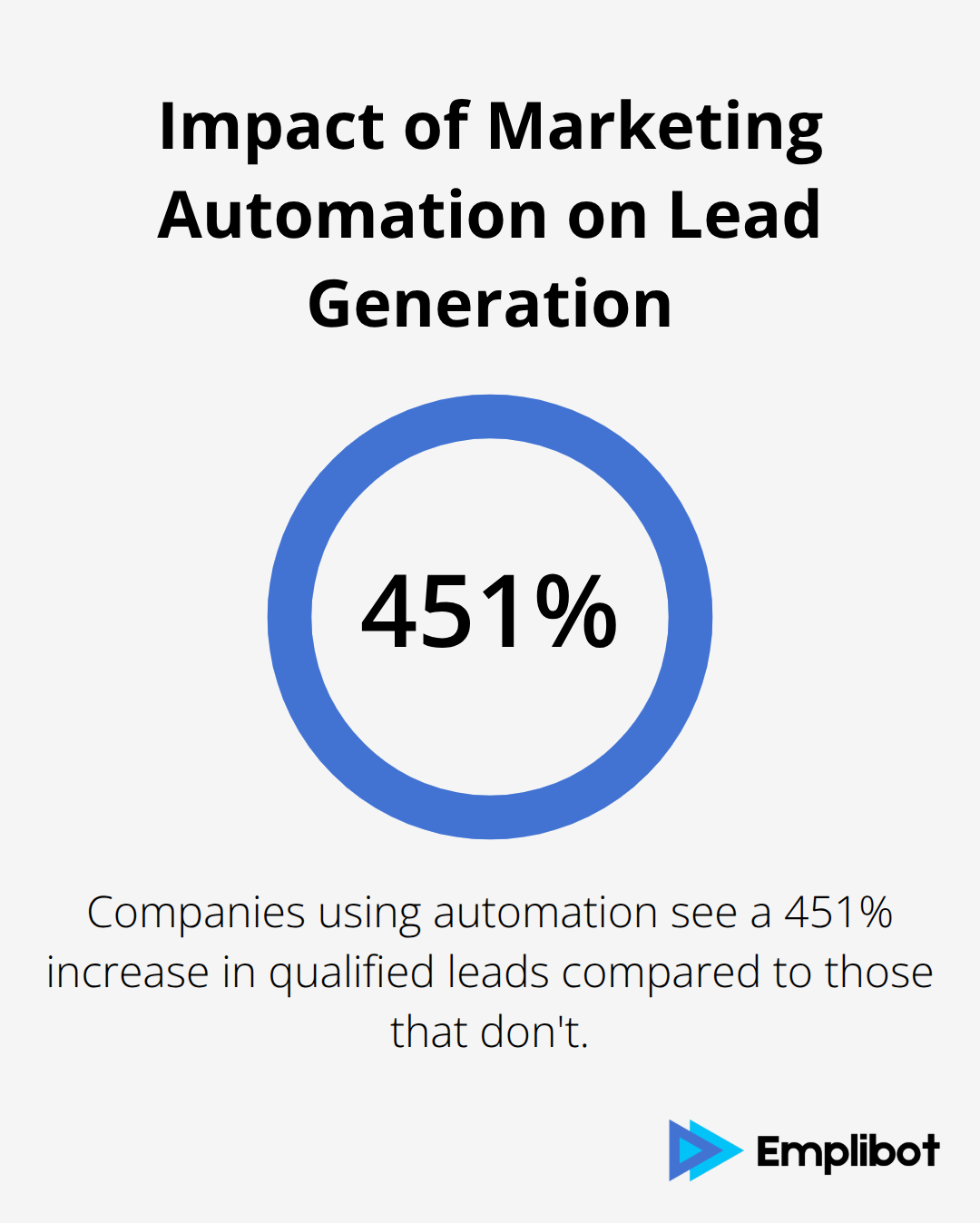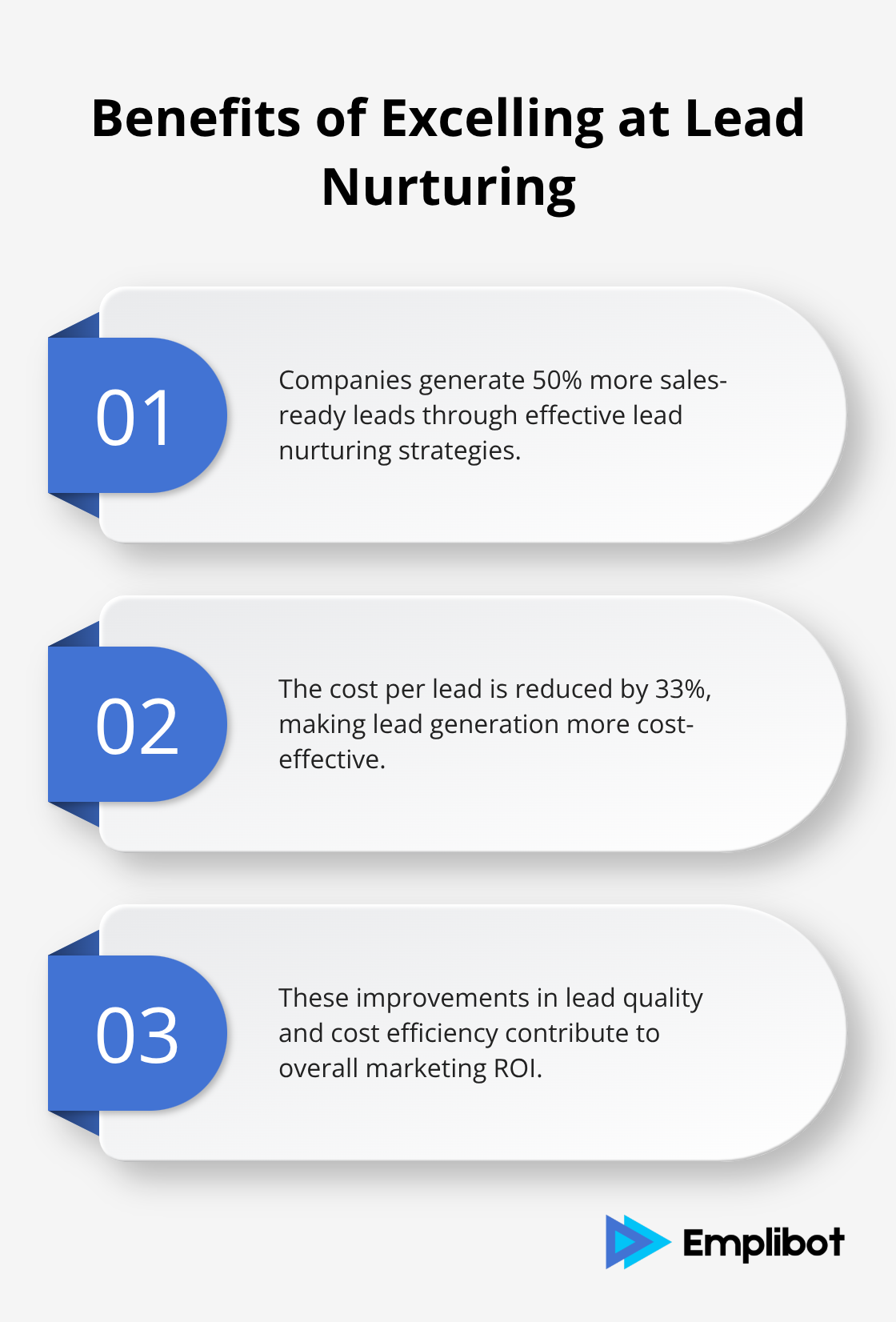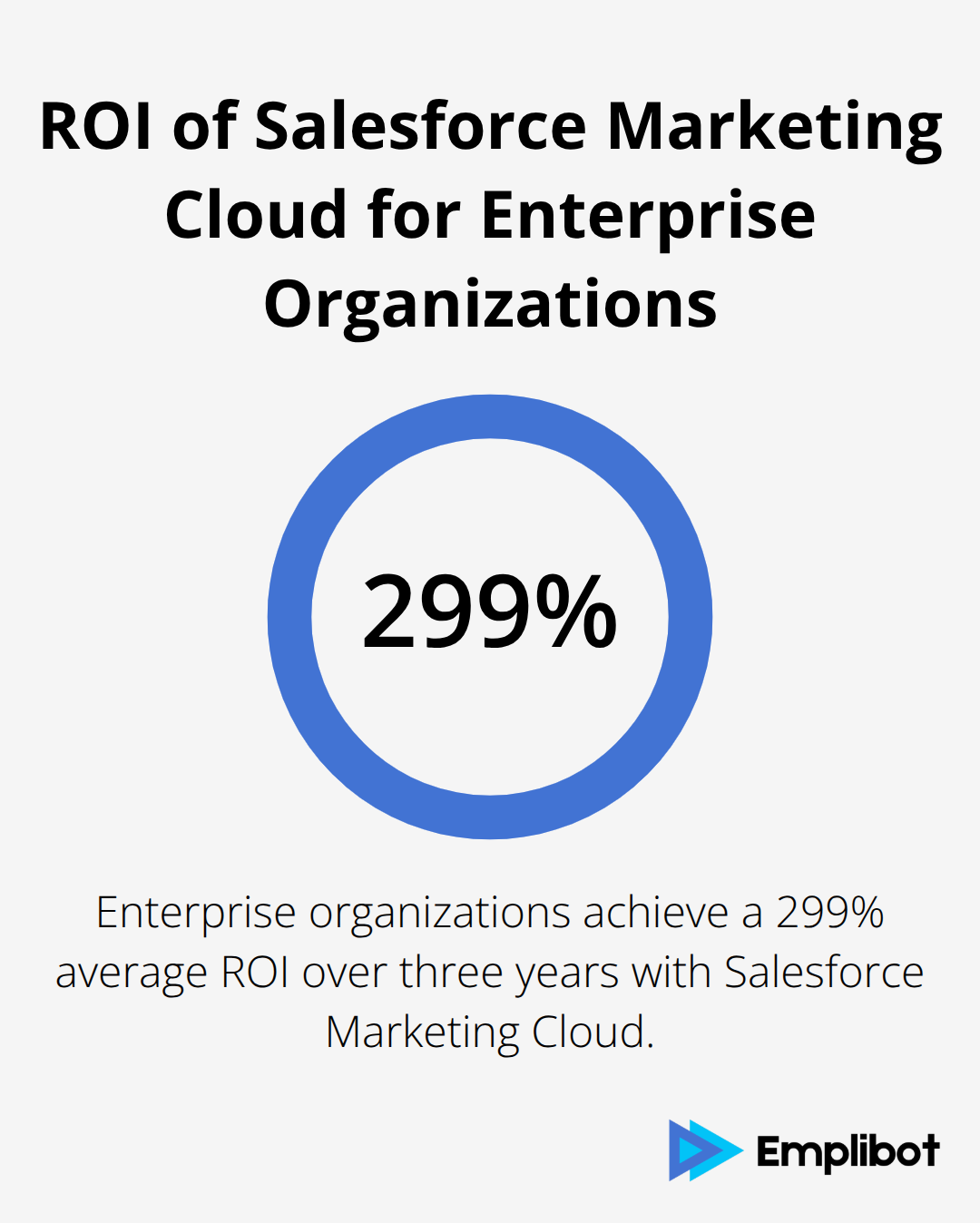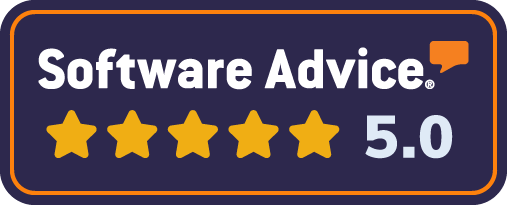Marketing automation tools can transform how businesses handle repetitive tasks and connect with customers. Studies show companies using automation see 451% more qualified leads compared to those that don’t.

We at Emplibot understand the challenge of choosing the right platform from hundreds of available options. This guide breaks down the essential tools and features that actually move the needle for your business.
Contents
ToggleWhich Marketing Automation Tools Actually Work
Marketing automation splits into three essential categories that handle different parts of your customer journey. Email automation platforms lead the pack with automated emails that can significantly improve open rates compared to standard promotional emails. HubSpot dominates this space with comprehensive CRM integration, while Mailchimp offers affordable entry points that start at $13 monthly for smaller audiences. ActiveCampaign excels with AI-driven content generation and predictive features from just $15 monthly. Klaviyo targets eCommerce specifically with drag-and-drop workflows and flexible prices that begin at $20 monthly.
Social Media Automation Saves Time
Social media management tools handle posts, schedules, and engagement across multiple platforms simultaneously. These platforms save marketing teams up to 40% of their time on repetitive tasks (according to HubSpot research). Buffer and Hootsuite remain popular choices, but newer platforms like Later specialize in visual content. The key advantage lies in consistent posts that maintain audience engagement without manual intervention. Smart social media automation also tracks engagement patterns and suggests optimal times based on audience behavior data.
Lead Generation Software Converts Visitors
Lead generation and nurturing software transforms website visitors into customers through automated workflows. Companies that excel at lead nurturing generate 50% more sales-ready leads at 33% lower cost per lead according to Forrester Research. These tools track visitor behavior, score leads automatically, and trigger personalized follow-up sequences. Pardot and Marketo handle complex B2B lead scoring, while simpler solutions like ConvertKit work well for content creators and smaller businesses. The most effective platforms integrate directly with your CRM system to create seamless handoffs between marketing and sales teams.

Integration Makes the Difference
The real power emerges when these tools work together rather than in isolation. Modern businesses need platforms that connect email campaigns with social media posts and lead generation efforts. This integration creates a unified customer experience where each touchpoint builds on the previous interaction. Smart marketers choose tools that share data seamlessly and trigger actions across multiple channels based on customer behavior.
What Features Matter Most in Marketing Automation
Smart marketers focus on three non-negotiable features when they select automation platforms. Integration capabilities top this list because disconnected tools waste time and create data silos. Your automation platform must connect seamlessly with your CRM, email service, website analytics, and existing software stack.
Integration Capabilities Define Success
Zapier integration alone covers over 8,000 applications, but native integrations work faster and more reliably. HubSpot excels here with direct CRM connections, while platforms like ActiveCampaign offer robust API access for custom integrations. Poor integration forces manual data entry and kills automation efficiency. The best platforms sync data automatically across all your marketing tools without technical complexity.
Analytics Drive Better Decisions
Real-time reports separate professional platforms from basic tools. Marketing automation generates massive amounts of data, but only actionable insights improve results. Look for platforms that track email open rates, click-through patterns, lead score changes, and conversion paths automatically. Enterprise organizations achieve 299% average ROI over three years with Salesforce Marketing Cloud. The best platforms show which campaigns generate revenue, not just engagement metrics.

Scalability Prevents Future Headaches
Choose platforms that grow with your business rather than force expensive migrations later. Scalable automation handles increased email volumes, more complex workflows, and additional team members without performance drops. Customization options matter equally because generic templates rarely match specific business needs. Customer.io excels with complex workflow capabilities for companies that expand rapidly, while Mailchimp scales well for lists that grow steadily. Avoid platforms with rigid price tiers that penalize growth.
The most flexible solutions offer custom fields, advanced segmentation rules, and workflow builders that adapt to new marketing strategies without technical expertise. These foundational features determine whether your automation investment pays off, but the real question becomes which specific tools deliver these capabilities best for different business sizes and industries.
Which Tools Fit Your Business Size
Small businesses need automation that works immediately without technical complexity or enterprise-level costs. Mailchimp dominates this space with plans that start at $13 monthly and handles up to 500 contacts on their free tier. Their drag-and-drop email builder requires zero technical skills, while basic automation workflows trigger welcome sequences and abandoned cart recovery automatically.
Brevo offers even better value at $9 monthly with SMS integration and built-in CRM features that eliminate separate tool costs. ActiveCampaign provides the best feature-to-price ratio at $15 monthly, with AI-powered email content and behavioral tracking that typically costs hundreds elsewhere. These platforms handle the essential automation tasks that generate immediate ROI without overwhelming small teams.
Enterprise Solutions Handle Complex Requirements
Large organizations require platforms that manage millions of contacts and integrate with existing enterprise software stacks. Salesforce Marketing Cloud leads here with sophisticated lead scoring, multi-touch attribution, and advanced analytics that track customer journeys across dozens of touchpoints.
Companies that use Salesforce report improved alignment with marketing and sales teams along with increased incremental revenues from improved customer experiences. HubSpot Enterprise starts at $890 monthly but delivers comprehensive CRM integration, custom dashboards, and team collaboration tools that handle complex approval workflows. Marketo excels at B2B lead nurturing with advanced algorithms and account-based marketing features.
These platforms justify their higher costs through advanced personalization capabilities and detailed analytics that optimize campaigns at scale. However, the biggest challenges of marketing automation often stem from choosing platforms that don’t match your company’s needs and size.
Content Marketing Needs Specialized Tools
Content creators and SEO-focused businesses benefit from platforms designed specifically for content distribution and search optimization. ConvertKit specializes in creator workflows with tag-based automation that segments audiences based on content consumption patterns. Their visual automation builder connects email sequences to specific blog posts or course completions seamlessly.
For comprehensive content automation, Emplibot stands out by handling everything from keyword research to content creation and SEO optimization automatically. It produces high-quality, engaging content tailored to your business and distributes it across platforms like LinkedIn, Facebook, and Twitter (with complete WordPress integration). This complete content marketing solution runs on autopilot while allowing manual control when needed, making it perfect for businesses that want consistent content output without dedicating full-time resources to content creation.
Final Thoughts
Marketing automation tools deliver measurable results when businesses choose platforms that match their specific needs and growth stage. Companies that use automation see 451% more qualified leads and achieve up to 80% ROI through streamlined workflows and personalized customer experiences. Success depends on platforms with strong integration capabilities, actionable analytics, and scalability features.
Small businesses thrive with affordable solutions like Mailchimp or ActiveCampaign, while enterprises need comprehensive platforms like Salesforce Marketing Cloud. Content-focused businesses benefit from specialized automation that handles both creation and distribution. The implementation process starts with identification of your primary automation goals (whether that’s email nurturing, social media scheduling, or lead generation).
Map your current workflow gaps and choose platforms that solve your biggest time-consuming tasks first. Emplibot exemplifies this focused approach through complete content marketing workflow automation from keyword research through social media distribution. Start with one core automation platform and expand gradually as your team masters the initial workflows.










